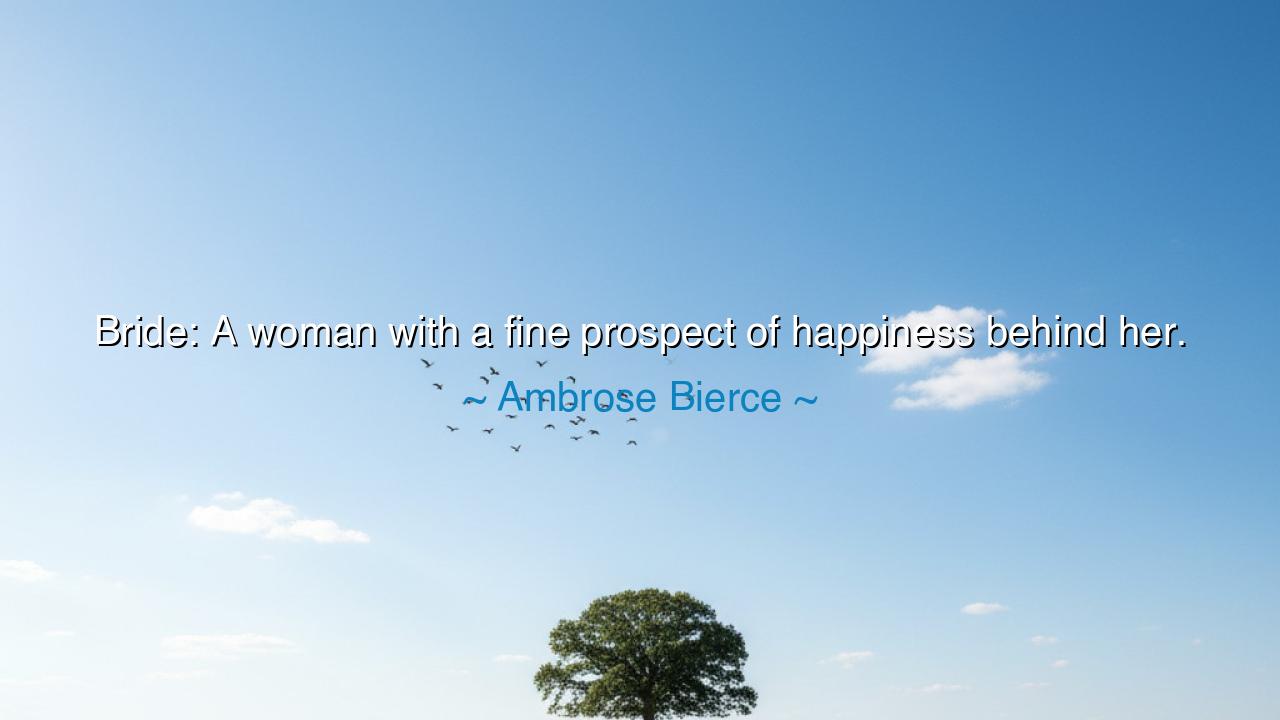
Bride: A woman with a fine prospect of happiness behind her.






The words of Ambrose Bierce, sharp as a blade and wrapped in irony, declare: “Bride: A woman with a fine prospect of happiness behind her.” In this cynical jest from The Devil’s Dictionary, Bierce casts doubt upon the promise of marriage, suggesting that for many women, the brightest days lie not ahead, but in the fleeting hours before the vow is spoken. It is a bitter truth disguised as humor, born from his observation of a society where marriage often dimmed the freedom, joy, and individuality of women.
For in Bierce’s time, the bride was praised with ceremony and flowers, but once the vows were spoken, her life often narrowed. Her happiness was too frequently sacrificed to duty, her desires bent to the will of her husband and the demands of domesticity. Bierce’s definition exposes this contradiction—society adorns the bride with hope, yet too often delivers confinement. Thus his wit becomes a warning: beware a system that exalts a woman in ritual only to silence her afterward.
History gives weight to his words. In the Victorian age, women were raised to believe marriage was the summit of existence. Yet once wed, many found themselves stripped of property rights, silenced in law, and bound to husbands who held legal power over them. Consider Caroline Norton, a gifted writer whose husband denied her access to her children and her earnings after marriage. Her story, tragic and unjust, reflects precisely the disillusion Bierce mocks—the happiness of the bride fading swiftly into chains.
Yet within the irony lies a call to transformation. If marriage is to be more than the grave of joy, then it must be reimagined not as domination, but as partnership. A bride should not carry her happiness only in memory; she should carry it into the future, nourished by equality, respect, and love. In this, Bierce’s biting wit becomes prophetic, challenging future generations to break the cycle of disappointment and to build unions where joy endures.
Therefore, let this lesson endure: laughter may carry truth more piercing than lament. The bride deserves not to be the figure of past happiness, but of future promise. Bierce’s words, though steeped in irony, urge us to guard against the emptiness of ritual without substance, and to strive instead for marriages where both partners walk forward with their happiness not behind them, but before them, radiant and unending.






AAdministratorAdministrator
Welcome, honored guests. Please leave a comment, we will respond soon